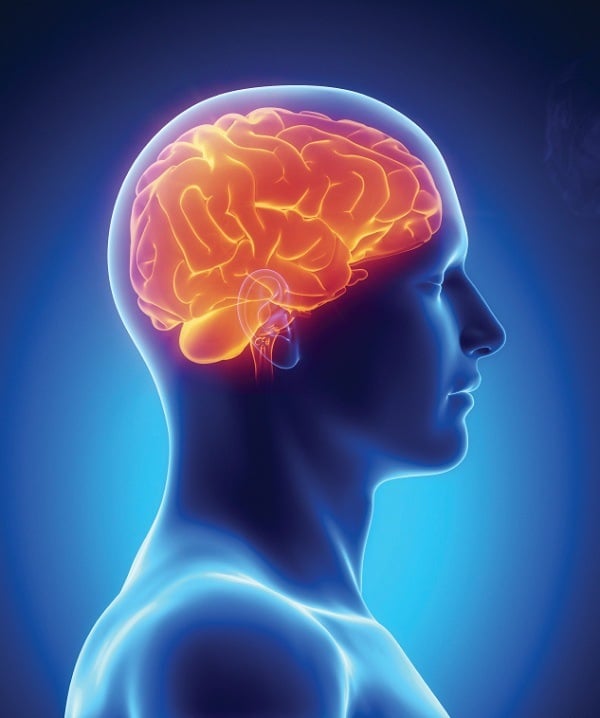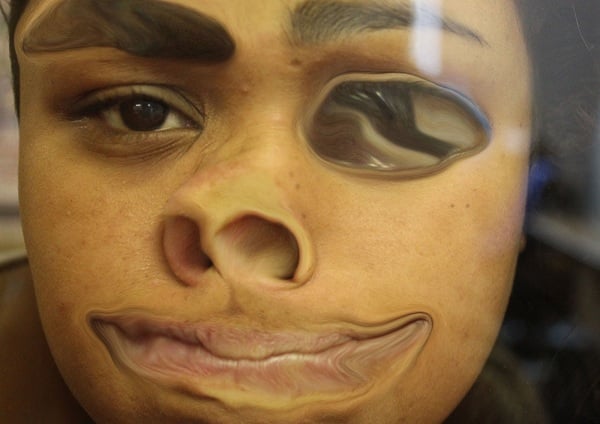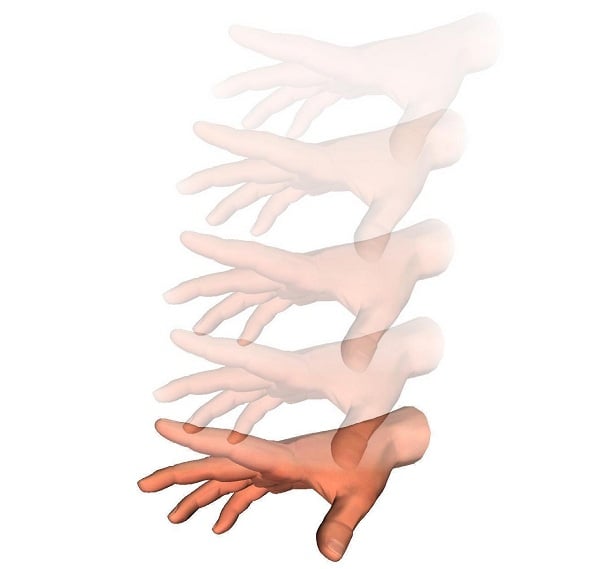It’s safe to say that most people have experienced the occasional sore throat or a rough bout of seasonal influenza. Yet for all of the ordinary, run-of-the-mill afflictions we deal with on a day-to-day basis, there are just as many unbelievably bizarre diseases that exist throughout the world. Here are some of the most incredible illnesses you’ve probably never heard of:
Incredible Illnesses: The Jumping Frenchmen Of Maine

The Jumping Frenchmen of Maine were first discovered in a medical journal article written by Dr. George Beard in 1880. He described people in an isolated community of lumberjacks of French Canadian descent who were unable to keep from startling. After being startled, the men would utter weird phrases and obey ridiculous commands.
Though startle responses are normal, people affected by Jumping Frenchmen of Maine have a greatly exaggerated startle response. Aside from the pronounced jumping, other symptoms include involuntary imitative behavior and obedience to commands. Observers have noted similarities to Tourette’s and other “tic” disorders.

Jumping Frenchmen of Maine is one of multiple culture-specific startle disorders (the other main disorders are Latah and Myriachit). It’s unknown how the disease comes about, though researchers say it most likely occurs due to an extreme conditioned response to a particular situation influenced by cultural factors. Researchers consider the disease to be part of a behavioral pattern and neuropsychiatric in nature.
Foreign Accent Syndrome

Source: Omega Medical Research
Imagine waking up and speaking in an accent you’ve never even heard before. No, you didn’t vacation to a foreign country in last night’s dream; you’re just suffering from foreign accent syndrome (FAS), one of the most bizarre illnesses on the planet.
Just like the name describes, individuals who suffer from foreign accent syndrome suddenly begin speaking with different intonations and use sounds that vary from their actual speech patterns. The first case of FAS was reported in 1941 by a Norwegian woman who suffered a brain injury and then spoke with a German accent.
Foreign accent syndrome is a physiological problem, not a psychological one, and usually occurs due to a combination of sociology and biology. Most often, the disease is triggered by some sort of brain injury such as a stroke or extreme migraine. Doctors have noticed that most patients suffering from FAS show anterior lesions in the left hemisphere of the brain (the side associated with language).
Since foreign accent syndrome has gained mainstream interest, many people have tried to imitate the disease for attention and fame. Doctors are careful to record the differences in one’s speech patterns to maintain that they are consistent and that the patient is, in fact, suffering from FAS.
Here’s a clip from My Strange Brain looking into the disorder:
Incredible Illnesses: Alice in Wonderland Syndrome

Source: Pic Stop In
In 1955, psychiatrist John Todd discovered Alice in Wonderland syndrome (AIWS), naming it after the Lewis Carroll book because of their many similarities. This syndrome, which was described by a neurologist as “mini migraines exploding in the brain,” causes an extreme distortion of visual perception and altered body image.

Source: Instaprints
There are two main distortions commonly experienced by people with AIWS. The first is an altered body image, where people view their own bodies as growing or shrinking in size. This is often the most disturbing symptom of the disease, as patients often feel as if they are drugged or going mad. The second is distorted visual perception which causes people to misjudge distances, or think objects are a different size or shape than in reality.

Source: Teryn J
Doctors are still unsure as to what causes AIWS, though it usually occurs as a symptom to other illnesses or diseases. Right now there is no known cure, so doctors urge patients to relax and simply wait for symptoms to subside.
Palinopsia

Palinopsia is a visual disturbance that causes images to persist to some extent even after their corresponding stimulus has left. Though afterimages are a normal response to stimulus, for persons suffering from palinopsia, the afterimages persist to a much greater degree and become impossible to ignore.
There are positive and negative afterimages. A positive afterimage is usually shorter and the coloring of the afterimage will be the same as the original, where a negative afterimage will last longer and the colors will be inverted. Those with palinopsia usually see a trail of positive afterimages, as seen in this video simulation:
In unaffected individuals, afterimages are thought to be a retinal phenomenon, however, in the case of those with palinopsia, doctors think the increased presence of afterimages is actually caused by the brain. Though palinopsia can appear on its own, it’s most often noted in conjunction with other brain-related disorders such as visual snow, tumors, or seizures.
Paris Syndrome

Source: My Modern Met
In its purest form, Paris Syndrome is culture shock to the max. This super-specific syndrome affects Japanese tourists who visit Paris and are devastated by the discrepancy between reality and their idealized image of the city of love.
In Japanese media, Paris is portrayed as a quaint, friendly city filled with kindness and love. In reality, Paris is just as full of unfriendly locals, crime, and filth as other major tourist stops, though unlike cities such as New York that embrace the good and bad, Paris has written off the bad and given Japan an unattainable, idealized vision.

Source: Socialite Life
Tourists who are affected by Paris Syndrome suffer from psychological and physical symptoms including feelings of persecution, depression, acute delusions, anxiety, and hallucinations.
Sufferers report being traumatized by their travels and those who are unable to cope are sent home to Japan. Paris Syndrome is so common that the Japanese Embassy in Paris even has a support line to reassure tourists and provide relief from nasty symptoms.
Sleeping Beauty Syndrome

Source: ABC News
Though Klein-Levin syndrome (KLS) is often referred to as Sleeping Beauty syndrome, those who suffer from the disease admit that life is anything but a fairy tale. KLS occurs most often in adolescents, with around 70% of the affected individuals being male. The neurological disorder is characterized by excessive sleeping and often increased appetite. Individuals affected by KLS are unable to remember their actions during the time they were “asleep” and wake feeling like they were only asleep for a few hours.
During recurring periods of sleep which can last for months, individuals who suffer from KLS are completely unable to care for themselves. Though they wake briefly to eat and use the restroom, patients are stuck in a trance-like state which prevents them from feeling emotions and often leaves them spacey, intensely confused and disoriented.
Check out this interview of a girl who suffer from Sleeping Beauty syndrome:
https://www.youtube.com/watch?v=1fUn8xrsinI
In the months or even years between symptoms, individuals suffering from the syndrome are perfectly healthy. However, upon the onset of symptoms, the individual’s entire demeanor changes. Though the cause of Sleeping Beauty syndrome is unknown, most patients can pinpoint an event that occurred before the first onset of symptoms—usually flu-like symptoms, stress, or an extended period of sleep deprivation.





